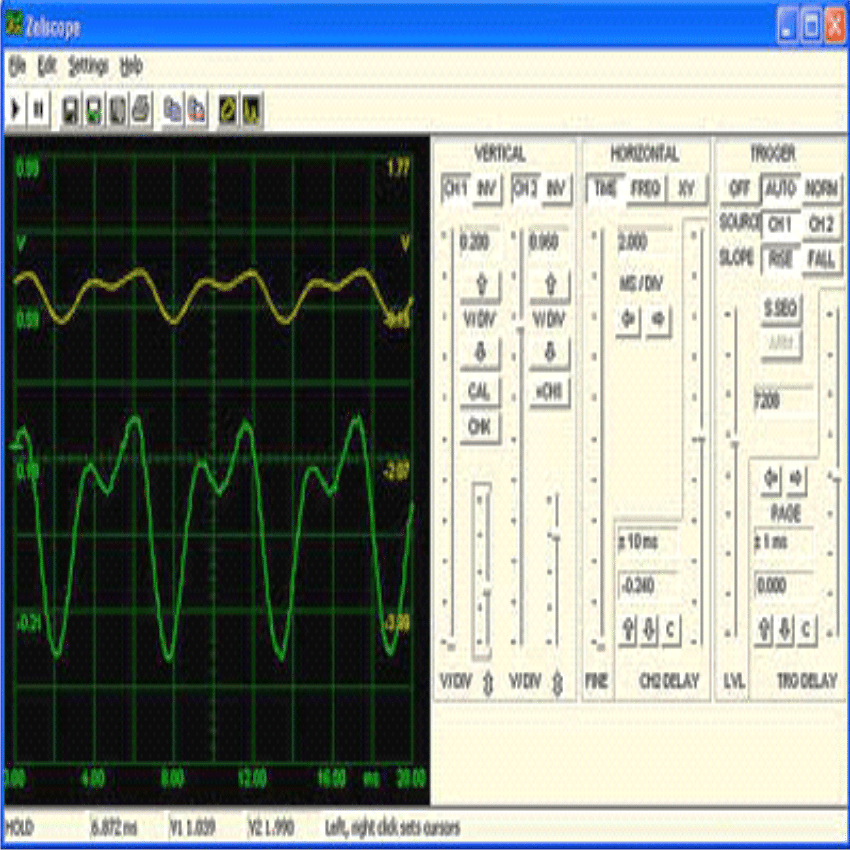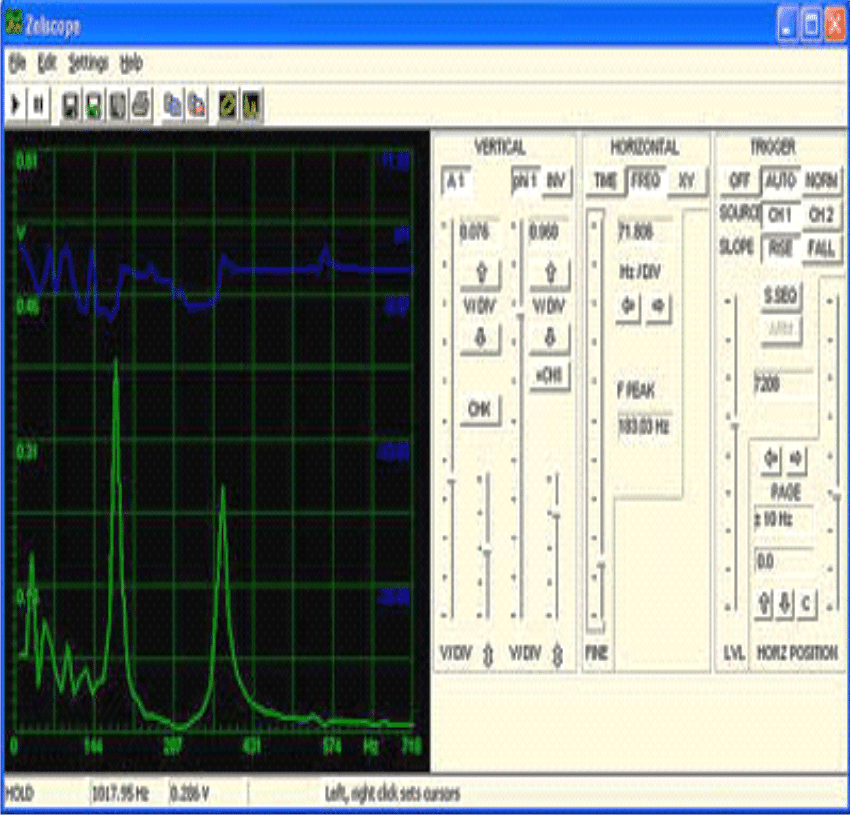As an electronics enthusiast or a hobbyist, you probably yearn for an oscilloscope to check out those elusive waveforms in your amplifier or radio. However, the cost deters you. A reasonably good oscilloscope will set you back by several hundred dollars, unless you buy a pre-owned piece or get one at the flea market.
However, there is hope yet. As you probably own a PC, all the hardware needed to display waveforms is already available to you.
Using PC Like an Oscilloscope
What you now require is software that will enable your PC to work as an oscilloscope; you can purchase this from Zelscope. If you own a PC with a fast processor, about 1GB RAM, about 1MB of free Hard disk space, and at least one 32-bit sound card, you are set up for converting your PC into an oscilloscope. You can even use your PC as a Spectrum Analyzer.
Some additional front-end hardware will be required to attach the oscilloscope probes and feed the test signal into the PC.
You can build your own following the instructions on the Zelscope site, or buy the front-end ready-made. Ordinary RG-58 coaxial cables can be used to make up the probes.
The probe end of the coaxial cable can have crocodile clips, while the end of the coaxial cable that connects to the front-end electronics could be terminated by a BNC.
There is a lot you can do with such a simple arrangement. You get up to two traces with a bandwidth of 10Hz to 20KHz, a sampling rate of 11KHz to 44KHz and an 8- to 16-bit acquisition (it all depends on your sound card).
The time base is from 5Sec to 10uSec with adjustable triggers, two independent cursors, direct frequency readout and time and voltage difference readouts.

The Zelscope-and-PC combination as a low-cost oscilloscope can help adjust audio circuits, take measurements in physics experiments, tune musical instruments, troubleshoot digital circuits, and do many other things. One limitation is that you cannot sense or display DC waveforms, since the sound card of the PC is capacitively coupled.
The spectrum analyzer mode can display amplitude and/or phase.

Apart from the display of waveforms, you can save screenshots, copy-paste functions for data files, save visible traces as text files and make printouts.
Your PC can now be used as a data logger as well. What if you are not satisfied with just an oscilloscope or spectrum analyzer in your arsenal?
Maybe you like to add a waveform generator and a ZRLC meter as well - for which you will need the Visual Analyzer. For those who are looking for something more professional, and willing to spend, Pico has a plethora of similar gadgets.